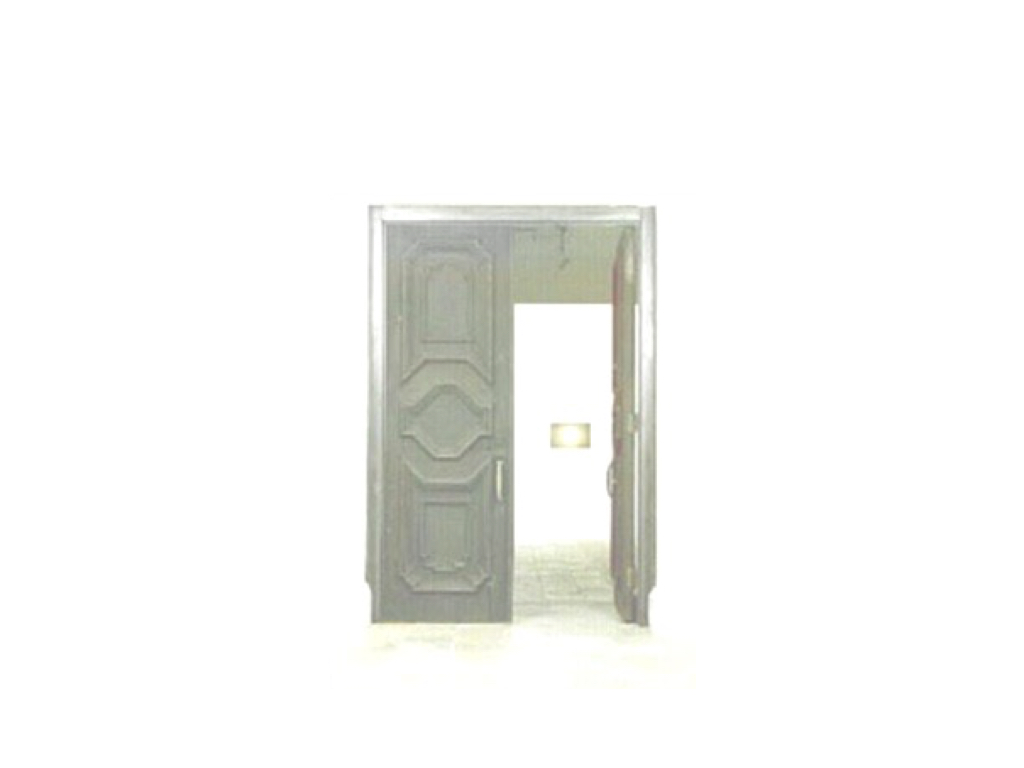9:35 A.M. My clock radio clicks into a jazz riff as it has for a week. In my haze of half-sleep I reach to it and turn the dial , winding slowly through a cross-section of morning radio. Phrases, words, half words the faster I wind. Soon it is only sounds that pulse in and out, blend, and break-up. Slowing, I allow it to become whole again, turning back into words and phrases that muster a familiarity that has no context save that to which my still dreaming mind refers.
7:00 P.M. I arrive at the Dactyl Foundation on Grand Street. If glancing from the sidewalk outside as one might when passing by, the white walls and open space of the front room appear as vacant and familiar as any gallery in the area. It is upon entrance to Dactyl that one feels a sense of serenity from the space, a quietness akin to that of certain time-worn places of worship. A narrowness about this front room pulls vistors toward the large carved double doors leading to a dimly lit inner chamber. Tonight it is arranged for a reading from the celebrated poet and teacher Ann Lauterbach and her former pupil and acclaimed young poet, Heather Ramsdell. In the minutes before the reading, the small crowd hovers and mingles in the front room; a few, including myself, are drawn into this inner chamber. Taking a seat towards one side, one can’t help but liken the effect of the room to an altar. As the scheduled time approaches the crowd begins to file in. Any coldness that may have come out of the space aesthetic of the foundation has now vanished, the crowd snug in rows.
After a brief introduction, Heather Ramsdell begins with a tribute to Ann Lauterbach, her mentor and fellow reader. Ramsdell’s repertoire of the common place is raw and destructive. She sees the color of rust as well as the decay. At times she seems to be tuning the world around her and we are privy to this, complete with static and snow. Ramsdell’s play with language and phrasing becomes a game of connotation, and reminds me of the spinning of an AM/FM dial. Lauterbach’s images and language are beautiful but even more difficult. One can appreciate the risk factor, but the anxiety of a potential collapse into over processed fragments of experience is disconcerting.
Laurel Broughton
New York, New York
1998
zingmagazine
